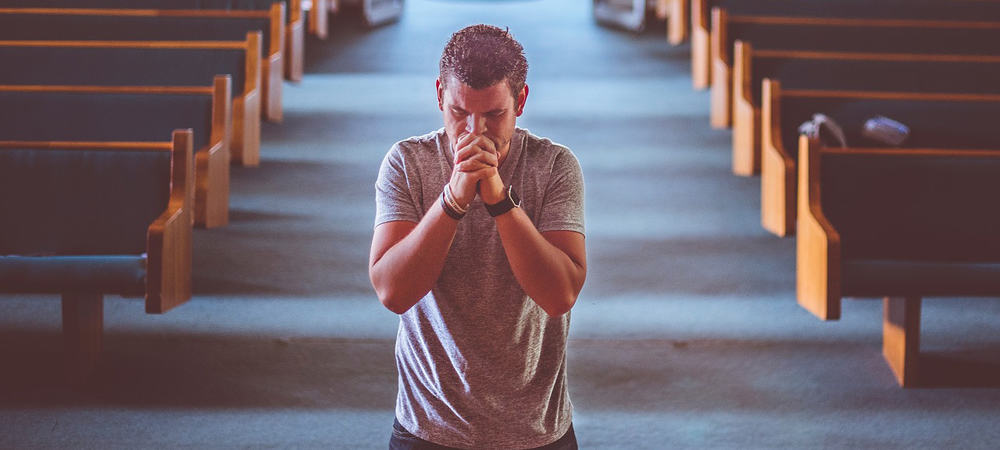For a while now I have wanted to write about this topic of changing church and whether Christians should or shouldn't. People change churches all the time, for numerous reasons. Some valid, some not. I believe one of the biggest problems in the church today is that some people who should leave their church, don't. I'll share my thoughts on why below, but first I'll mention some reasons NOT to leave a church.
Changing Churches – Reasons NOT To Leave Your Church
To be clear, I am not talking about leaving a church because of one's faith struggle or problems with God. I am specifically talking about leaving a church and going to another church. Here are some reasons NOT to do that:
Don't leave because you disagree with small changes
Change is inevitable. Great leaders steer change to help push the organization forward. Churches change small things often if they want to continue making disciples in the midst of a changing culture. Some examples might be removing a program, adding a projection screen (if it's 1998), changing service times, etc. You probably know some examples if you're part of a church. Change is necessary, and every church won't be right every time. Give your church freedom, and only consider leaving if changes go against your theology, morals, or strategy-fit (I made that phrase up, and I'll expand in the next post). Even in those cases, consider the possibility that you may not be right, and be open to grow and learn.
Don't leave because somebody hurt you
Remember the church is people, and people are imperfect. If somebody hurts your feelings, talk to them about it and respond with forgiveness and grace. If you leave a church because somebody hurt you, you'll probably leave every church you're ever a part of.
Don't leave because you were challenged to live differently
If your church challenges you to live in a way that contradicts your sound understanding of what the Bible teaches, that may be a reason to leave. But, if you get offended because you are challenged to be free from a specific sin in your life, or because you're challenged to give financially, or serve consistently, or get connected in a small group, that's not a reason to leave. That's a prodding to live more like Jesus.
Changing Churches – Reasons To Change Churches
The Church (all over the world) is plagued with “church hoppers” who bounce from one church to another for typically selfish reasons that benefit neither the church or the individual. On the other hand, I believe the Church is also hampered by the fact that tons of people stay involved in churches when they really should leave. I know that's an extremely controversial statement, but let me explain my thoughts behind it.
I believe the Church (made up of all Christians everywhere) is beautiful for many reasons, one being its diversity. The church I'm a part of looks different than others around here, and vastly different from churches in other countries. That's a great thing. To take it one step further, I think all churches have unique personalities and characteristics, and people should be part of a church they can fit in with from that standpoint.
However, the questions SHOULDN'T be:
- Do I like the music style?
- Is the preaching something extremely helpful to me?
- Will this church let me ______ (fill in the blank with some personal agenda, like sing, preach, be an elder, etc)?
Hopefully, you see the common thread there, with me being the central focus. To spin that a little…
Here are good questions to ask when choosing a church:
- What is the church's theology, doctrine, or “essentials” in terms of beliefs?
- What is the church's mission? (why do they exist)
- What is the church's vision? (what future do they hope to create)
- What is the church's strategy? (how do they accomplish their mission and vision)
Then, in light of those answers, ask yourself:
- What is God's purpose for my life? (The Chazown book would be a great start)
- What are my core values? (list them out and compare to the church)
- How do my personality, giftedness, skills, and abilities fit with the church's strategy? (if you're a great organist, you may not fit with the hip-hop worship style church)
- Could I invite my friends & co-workers to that church?
Essentially, you are searching to see if your greatest potential as a Christian servant is found within that church. Your church should help you to leverage your time, talent, and resources in the greatest way possible to serve your community.
Changing Church – Why does this matter?
Pretty much every city in the U.S., and around the world, needs more churches (if you believe that's a good thing). But, part of the problem isn't the number of churches, because some places have tons. Part of the problem is they need more healthy, growing, relevant churches that are making disciples and reaching people who are not a part of any church. You hear all the time how the median church size is around 75 people (half are smaller, half are larger). Plus, you hear that a vast majority of churches stay the same or are shrinking in terms of size from year to year. Something has to change.
I think there are tons of passionate, amazing Christ-followers who are sitting in churches that are stagnant or dying and they are not there because they fit with the church's mission, vision, and strategy. They are there because they grew up there, or because it was their first church, or because it was the first church they plugged into when they moved into town. Those people are loyal and have stuck with their church in spite of numerous frustrations with the church's leadership and effectiveness. They are making a difference there, of course, but I believe they could really make a difference in a church that was more on a mission.
I know this is crazy, but could you imagine what could happen if all those people became involved with new churches? Their effectiveness and impact could be ten-fold larger and the churches they get involved with would be more effective as well.
Yes, the church they leave would miss them, but, they wouldn't die simply because they left. Some churches need to die in order to provide new life to other churches, but that wouldn't be the case for most people in the situation I have described. Their churches would probably survive for a long time after they left.







Nick, Great Topic! I love it when people discuss the tough issues about church and ourselves. You know, the one’s that tend to be undiscussed large elephants in our lives.
For me personally, I’m a strategic thinker. I can’t help but look at systems, rules, engagement with people, leadership and direction and not want to find a way to always make it better. Not that I think I always know best, but more of just a passion thing. I have found in the last few years of my life, that you cannot change something that does not want to be changed. And in many cases, those things just NEVER will change! I believe more than anything that Churches have to empower their volunteers and pull out their strengths and talents and help lead them in the churches strategic direction. Vision is KEY! Strategy is KEY! Silo’s have to be erased and everyone must realize that they are on the same team. As Andy Stanley said, “If you want a for sure way for your kids to grow up and leave the church, then stay in a church that you secretly wish you could abandon.”
Great thoughts Danielle. I think that thing you described about wanting to make it better is the gift of leadership in you. Great churches will help people use that in a positive way, even if it’s outside their specific church.
I wish churches that didn’t “get it”, would help the people in their church that do “get it”, move on and start something new or contribute to something they would be more in tune with. Instead, they typically hold them down and sometimes it burns out their passion.
I love that Andy quote, and will probably use that forever 🙂